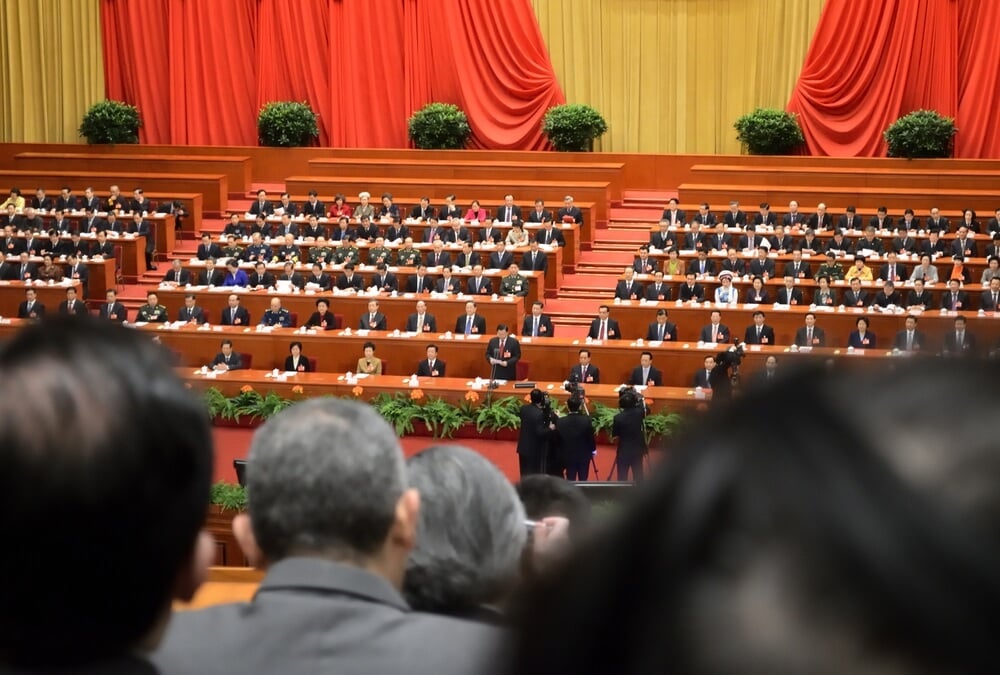News stories about China nowadays largely focus on geopolitical developments, particularly the Sino-American rivalry.
But China’s 1.4 billion people, while aware of these issues, are more preoccupied with a problem that hits much closer to home: their shrinking families.
For millennia, Confucian values have defined the family as essential to social order and harmony, with family relations playing a central role in confronting challenges such as competition for land and resources.
Sons managed farms and businesses, and cared for elderly parents. Daughters expanded the family through marriage, creating large extended networks that carried out critical economic and social functions, such as building schools and resolving disputes – functions that in Europe might have been carried out by the church.
This basic economic and social structure survived even the dislocations of the 1950s-70s, when the new Communist regime encouraged people to live in dormitories (away from their families, including their spouses) and to send their children to state-run nurseries and boarding schools in order to boost labor productivity.
Today, however, the Chinese family is in crisis, owing to plummeting fertility rates, which declined from 7.51 children per woman in 1963 (its modern peak) to just one per woman in 2023.
This demographic collapse is putting China’s economy, society, and polity at risk.
Family-planning laws
The roots of China’s fertility struggles are deep. China’s population more than doubled between 1900 and 1979, from 400 million to 969 million.
Food shortages were so common during this period that China became known as the “land of famine.” Between 1959 and 1961, China endured the worst famine in recorded history, with 20-45 million people dying as a result of both high population density and deeply flawed government policies.
So, beginning in the 1970s, China’s government introduced strict family-planning laws that, for decades, restricted most Chinese households to one child.
But family-planning laws are only part of the story. Though China’s now infamous one-child policy was loosened in 2016, to two children, and then in 2021 to three, fertility rates have not increased.
Unlike other countries grappling with low fertility rates, such as Japan and South Korea, China is still a poor country
And unlike other countries grappling with low fertility rates, such as Japan and South Korea, China is still a poor country.
According to the most recent data (from 2022) China’s median per capita disposable income is $6,224($17 per day) for the 944 million people living in urban areas, and just $2,777 ($7.6 per day) for the 465 million in rural areas.
In the United States, that figure is $63,589. Even accounting for America’s higher prices, the difference is huge.
Add to that limited economic opportunities for young people – including those with university degrees – and Chinese households simply cannot afford more children.
Psychological hurdle
The newest generation of Chinese parents face an additional psychological hurdle, rooted in their lack of firsthand experience of big families.
The vast majority of them grew up as only children in households with two only children as parents, as well as four grandparents.
They did not have cousins or siblings to play with, but they did have a large number of adult caregivers. As a result, many do not value large families and find the notion overwhelming.
But all those caregivers imply heavy dependencies as generations age. A small and shrinking cohort of working-age Chinese, operating in a job market characterized by sparse opportunities and low wages, is now supporting a larger and growing population of retired individuals, who have limited access to pensions and health care.
And their responsibilities extend beyond finances to include physical and emotional support.
Children are more likely to be at home studying than outside playing
As if that were not enough, each young person is also the only source of pride for their parents and grandparents, who have collectively dedicated their lives – their time, energy, and money – to setting the child up for success.
Young adults now have to earn all the sacrifices their caregivers made for them, effectively compensating their parents and grandparents for the children and grandchildren who were never born.
This burden of responsibility is felt starting in childhood. Playgrounds are largely empty, and parks are populated mostly by retirees, even after school and on weekends.
Children are more likely to be at home studying than outside playing. All this pressure may well be fueling rising rates of depression and suicide among youths and young adults.
A nation of individuals without siblings and cousins
The situation is set to worsen. Slower economic growth – which has already driven youth unemployment to historic highs – will continue to constrain the job market, intensifying already-fierce competitionfor limited opportunities, and will impede the government’s ability to increase pensions.
 Although the government has implemented a broad range of policies aimed at encouraging families to have children, including monetary incentives, fertility remains low
Although the government has implemented a broad range of policies aimed at encouraging families to have children, including monetary incentives, fertility remains low
China’s government has a strong interest in addressing the crisis of the country’s families.
Economic and social problems tend to evolve in unpredictable ways, and they can easily spiral into political instability.
Although the government has implemented a broad range of policies aimed at encouraging families to have children, including monetary incentives, fertility remains low.
How will a civilization built around family units and networks fare as a nation of individuals without siblings and cousins?
What will the lives of the elderly be like when there are few young adults to care for them? Can ordinary Chinese, to whom family represents both a virtue and a way of life, feel content without children?
As the specter of social and economic upheaval looms, these questions must be answered.
Nancy Qian, Professor of Economics at Northwestern University, is Co-Director of Northwestern University’s Global Poverty Research Lab, Founding Director of China Econ Lab, and a visiting professor at the Einaudi Institute for Economics and Finance.